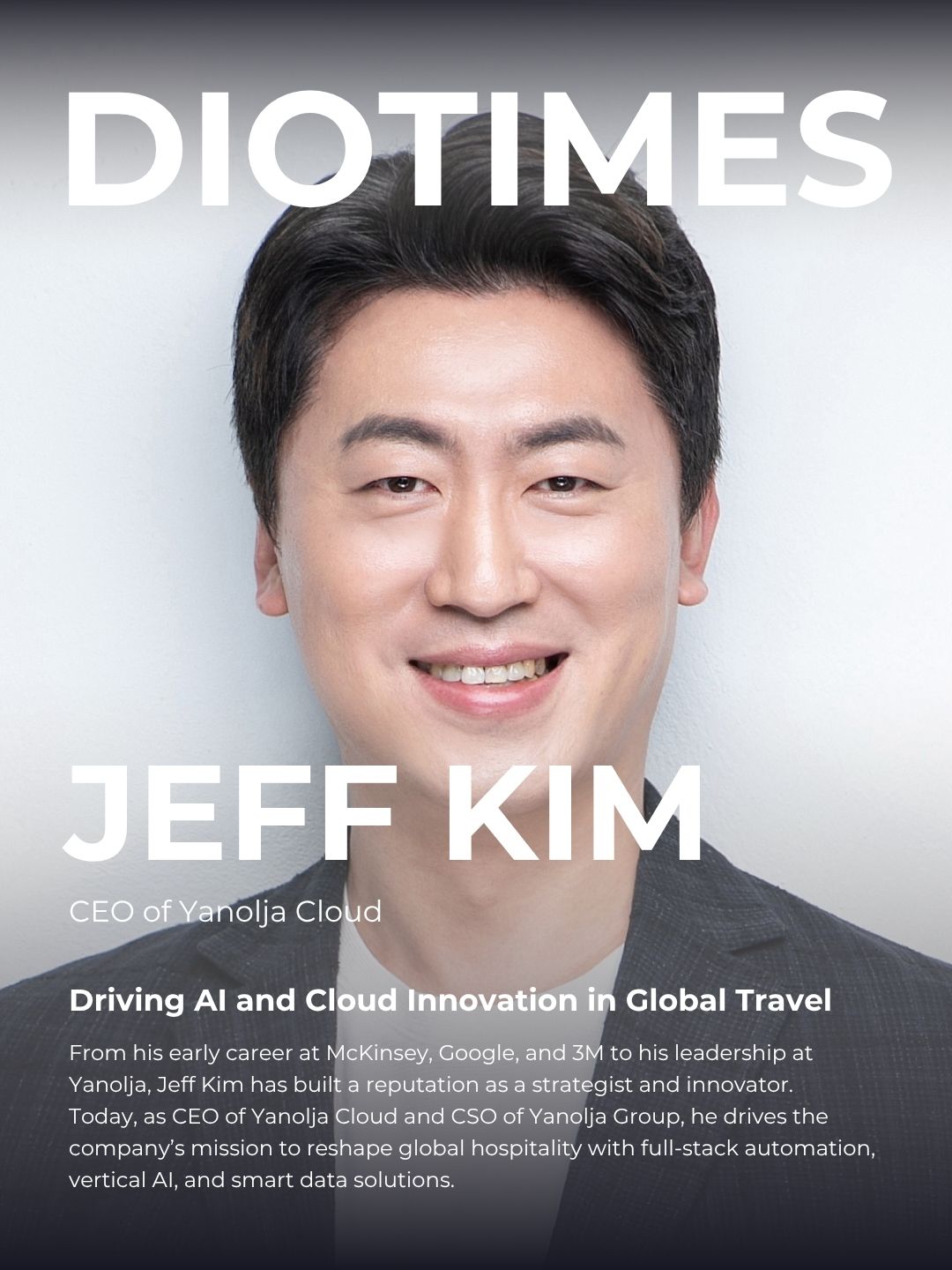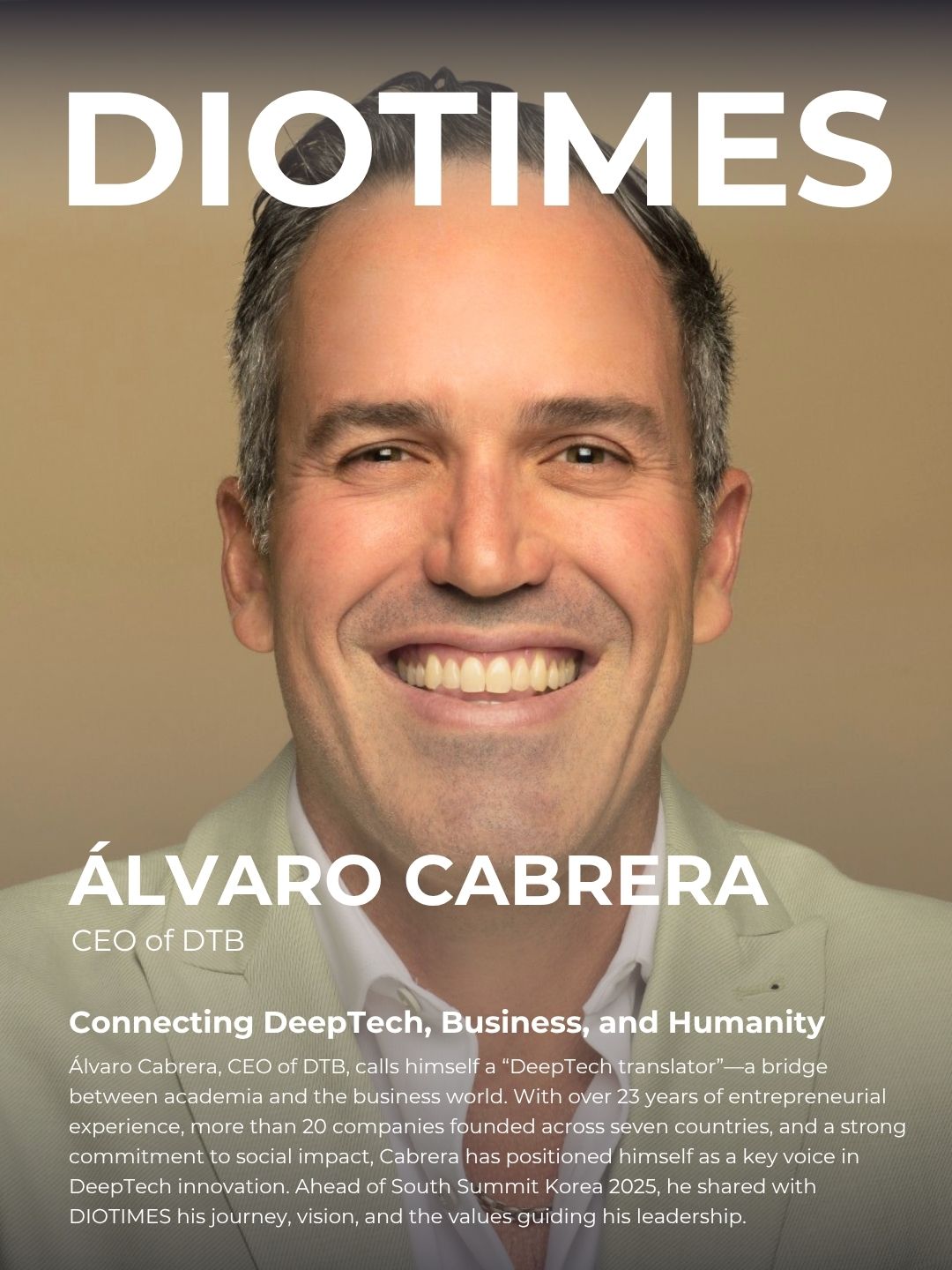You joined Yanolja in 2015 after experiences at McKinsey, Google, and 3M. How did these diverse backgrounds prepare you for leading Yanolja Cloud today?
My experiences at McKinsey and Google focused on helping technology companies scale globally and transform into leaders in their fields. At 3M, I learned how to operate within a large, complex organization. Together, these roles shaped how I approach building teams, product strategy, and execution. They gave me both a consulting perspective on growth and an operator’s perspective on efficiency, which has been critical in leading Yanolja Cloud.
What was the biggest turning point in your journey from strategy officer to CEO of Yanolja Cloud?
Twenty years ago, while working at Google, I dreamed of building my own global tech business. Since then, I’ve gained experience in every aspect of company operations, including R&D, sales, operations, and strategy. My overseas assignments and MBA further expanded my global perspective. This comprehensive background allowed me to take on various CXO roles at Yanolja, from CBO to CSO, CPO, and ultimately CEO, contributing to each stage of the company’s development.
As CEO of Yanolja Cloud, I am eager to share my experiences in growing a startup into a large, globally recognized tech company operating in 200 countries. I am committed to driving innovation worldwide and believe my journey from a Korean local company to a global leader offers valuable insights.
As both CEO of Yanolja Cloud and CSO of Yanolja Group, how do you balance the dual roles of innovator and strategist?
C-level executives are responsible not only for their specific functions but also for the overall management of the company. It can be challenging to balance sufficient management experience with the synergy of diverse roles.
Sustained growth requires a consistent focus on a mid- to long-term vision, not solely on short-term goals. Without a clear understanding of strategic logic, it is easy to lose direction. In my current role, I balance various organizations and their C-levels for short-term execution while establishing mid- to long-term strategies. This ensures a consistent vision and clear business logic for the future. This role, encompassing both CEO and CSO responsibilities, is becoming increasingly important in the AI era.
Yanolja Cloud aims to be a “full-stack hospitality tech platform.” Could you explain what this means in practice?
Yanolja Cloud is the enterprise solutions business group within Yanolja that provides technologies to help travel enterprises operate more efficiently and deliver more personalized experiences for travelers. Being a full-stack platform means supporting the entire hospitality value chain through a single Travel Enablement Platform. This platform delivers three core solutions: the Cloud Hospitality Solution, which streamlines hotel operations; the Transaction Solution, which connects suppliers with more than 21,000 global sales channels; and Mize, our AI-powered data enablement solution, which analyzes and generates insights from proprietary travel data. These solutions make it possible for enterprises to integrate systems and data, achieve digital transformation, and deliver smarter, more seamless experiences for travelers.
How do you envision the relationship between Yanolja Cloud and Yanolja Group evolving in the coming years?
Yanolja Group recently marked its 20th anniversary with a rebrand to reflect its mission for the next decade, which is to make travel 10X easier every day and lead the transformation of the global travel industry through AI and proprietary data. Within this vision, Yanolja Cloud plays a central role by equipping more than 1.3 million travel enterprises worldwide with enterprise solutions such as the Cloud Hospitality Solution, Transaction Solution, and AI-Powered Data Solution. The two are increasingly synergistic, with insights from the consumer platform strengthening enterprise technologies, and the innovations built for enterprises enhancing traveler experiences—together creating a smarter, more connected travel ecosystem for the future.
Many hospitality companies focus mainly on operations, while Yanolja Cloud pushes for automation and AI. What gap are you trying to bridge for the industry?
The biggest gap is fragmentation. Many travel enterprises operate on outdated systems and disconnected, siloed data. This makes it difficult to scale AI effectively or deliver consistent traveler experiences. Yanolja Cloud bridges these gaps by connecting suppliers, sales channels, and travelers. Our role is to turn fragmented information into actionable insights so enterprises can operate more efficiently, maximize revenue, and provide seamless, personalized experiences.
You often describe Yanolja Cloud as a pioneer in “vertical AI.” What are some real-world use cases of this approach in hotels or travel services?
Vertical AI means AI that is designed for the specific needs of the travel vertical, powered by Yanolja’s comprehensive quality data across the value chain. Real-world examples include Dynamic Pricing to forecast demand and adjust rates automatically, Room Mapping to standardize room data across suppliers, and AI Concierge and AI Itinerary tools that provide travelers with personalized recommendations and planning assistance. Our Cloud Hospitality Solution also uses AI-powered features to optimize reservations, billing, and inventory management. In addition, Smart Kiosk automates check-in and check-out to reduce operational costs and improve service efficiency.
How do you see full-stack automation—such as AI-driven check-in, concierge, and operations—transforming the customer journey?
Full-stack automation improves both the traveler experience and the travel enterprise’s experience. Kiosks manage peak-time check-in and check-out while reducing security risks from manual document exchanges. AI concierge and itinerary tools personalize planning and in-trip assistance. Cloud-based operations like PMS and Channel Manager ensure that hotel functions run smoothly in the background. This reduces friction for travelers while allowing staff to spend more time on high-value, personal service.
What do you think is the most underestimated technology trend in the travel and hospitality industry right now?
The most underestimated trend is end-to-end data integration. Many focus on visible tools like chatbots, but without a unified data flow across suppliers, properties, and channels, AI cannot deliver sustainable improvements. Yanolja’s strength is in its owned and connected data ecosystem, which enables AI solutions that can act on real-time insights rather than just respond to individual queries.
Yanolja Cloud has expanded rapidly across Asia, the Middle East, and Europe. Which markets do you see as your next big growth drivers?
While Asia, the Middle East, and Europe remain core to our business, we see strong growth momentum in Latin America and North America, with aggressive investment as well as the highest growth rate. Latin America has a fast-growing travel sector where many enterprises are still looking to modernize operations and connect with global distribution, which aligns well with our Cloud Hospitality and Transaction Solutions. In North America, enterprises are seeking advanced AI and automation to drive productivity and efficiency, which plays directly to the strengths of our AI-Powered Data Solution. These regions represent significant opportunities to scale our vertical AI solutions, strengthen connectivity across the ecosystem, and extend the benefits of our platform to more travelers and enterprises worldwide.
Can you share an example of a successful partnership with global tech players that accelerated your international growth?
We have partnered with global leaders like OpenAI and Google Cloud to advance AI adoption in travel. With OpenAI, we became one of the first in Korea’s travel industry to adopt ChatGPT Enterprise and GPT-5, and we also participated in the Operator research preview, applying our travel data to help refine its capabilities while enhancing personalization and automation for travel enterprises. With Google Cloud, we are integrating its AI infrastructure and generative AI tools with our proprietary data to create more personalized traveler experiences and improve efficiency for enterprise customers worldwide. These collaborations reflect our commitment to accelerating AI transformation across the global travel industry.
How do you adapt Yanolja Cloud’s solutions to different local markets while maintaining a consistent global vision?
Yanolja operates in more than 200 countries and connects 1.33 million travel enterprises with over 21,000 sales channels. Our global vision is to provide a unified data platform that streamlines operations and connects fragmented systems. At the same time, our technology is flexible to meet local needs. For example, hotels can use our cloud-based tools to manage reservations, update room availability across different booking sites, or automate check-in with smart kiosks. Our AI-powered solutions also support local pricing strategies, translation, and standardization of room data so that enterprises can respond to local conditions while still benefiting from a consistent global platform.
What message do you most want to deliver at South Summit Korea 2025?
My message is that AI is about unlocking new levels of productivity and opportunity. If you think of AI as a kind of capsule for efficiency, those who embrace it can do more, create more, and serve customers better. At Yanolja, we are applying agentic AI to real-world travel operations like housekeeping checks, check-in, and room service routing, showing how technology can free people from routine tasks and allow them to focus on creating warmer, more human hospitality experiences.
What outcomes do you hope to achieve from this event—new partners, investors, or innovation collaborations?
For me, the most valuable outcome is the chance to both share our experience at Yanolja and learn from other founders, investors, and innovators who are shaping the future with AI. South Summit Korea brings all of us together in one place, in a country that has become a true technology powerhouse. It is an opportunity to exchange ideas, build relationships, and explore how we can work together to apply AI in ways that make industries more productive and create better experiences for people around the world.
How do you see South Summit Korea helping to position Korea as a hub for global innovation?
South Summit Korea connects Korea’s technology ecosystem with the global community. By bringing leading entrepreneurs, investors, and researchers here, it shows that Korea is not only advancing in digital infrastructure and AI, but also contributing ideas and solutions that can shape industries worldwide. This event highlights Korea’s role as a center where innovation is created, tested, and scaled.
In the next 5 years, where do you see the greatest opportunities for travel and hospitality technology?
We see opportunities in several areas. Hyper-personalized offerings are becoming central to the traveler experience, and AI concierge and itinerary services will play an increasing role. Autonomous property operations supported by Cloud Hospitality Solutions will reduce manual workloads and boost efficiency. Contactless guest interfaces such as kiosks will continue to expand. Dynamic Pricing and workflow optimization driven by AI will become standard across the industry. Finally, data standardization through tools like Room Mapping will unlock greater distribution and revenue opportunities for suppliers and sales channels.
What role will Yanolja Cloud play in shaping the AI-driven future of travel?
Yanolja Cloud operates the Travel Enablement Platform, which connects more than 1.3 million travel enterprises with over 21,000 sales channels worldwide. Our role is to help the industry transform through AI, and we approach this in several ways. First, we use Korea as a testing ground for the newest AI technologies, building and validating innovations in one of the most advanced digital markets in the world. Once proven, we expand these solutions to enterprise customers globally. Second, we focus on developing practical AI that solves real challenges in travel operations, such as dynamic pricing, room mapping, or automating check-in and service workflows. Finally, we work with global generative AI leaders such as OpenAI and Google Cloud to integrate their models with our travel-specific data and platform. By combining local testing, practical applications, and world-class partnerships, we aim to lead the transformation of the global travel industry and make travel smarter, easier, and more connected.
As a leader, what advice would you give to startups aiming to scale globally from Korea?
My advice is to always look ahead to the next wave of technology, but to do it with the principles that have defined Korean success: speed, quality, and trust. Korea’s cultural influence has grown from K-pop and K-drama to K-food and K-beauty, which has made global customers more open and familiar with Korean companies. That gives startups here a unique advantage, but trust remains the foundation. In enterprise technology, once a solution is chosen, it is difficult to change, so security, reliability, and long-term commitment are essential. If startups can move quickly, maintain quality, and earn trust, they can scale globally from Korea with confidence.





